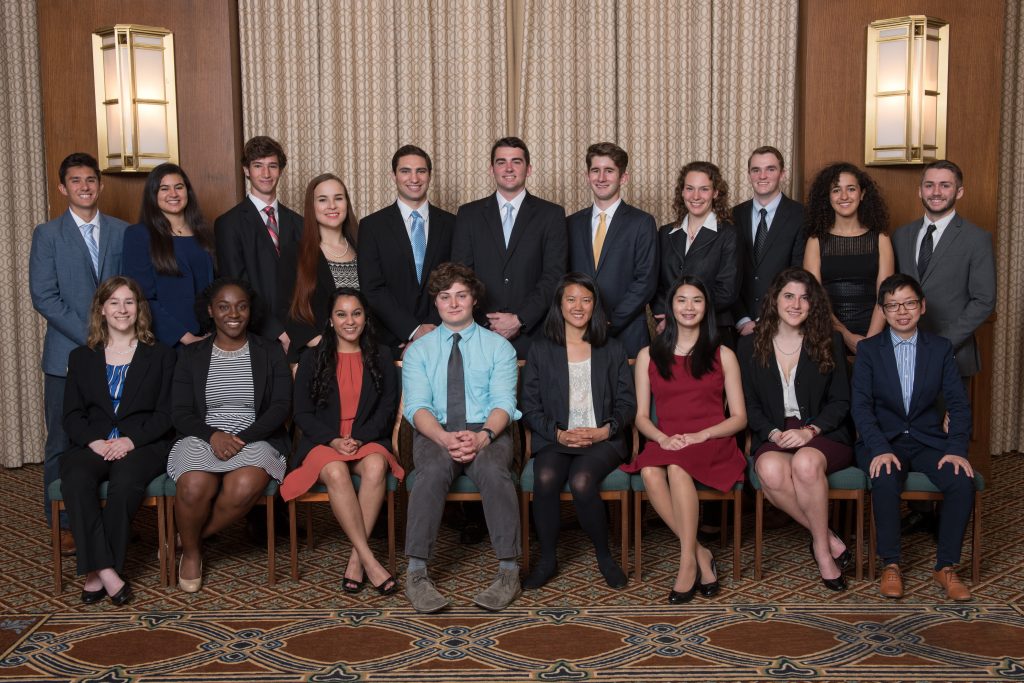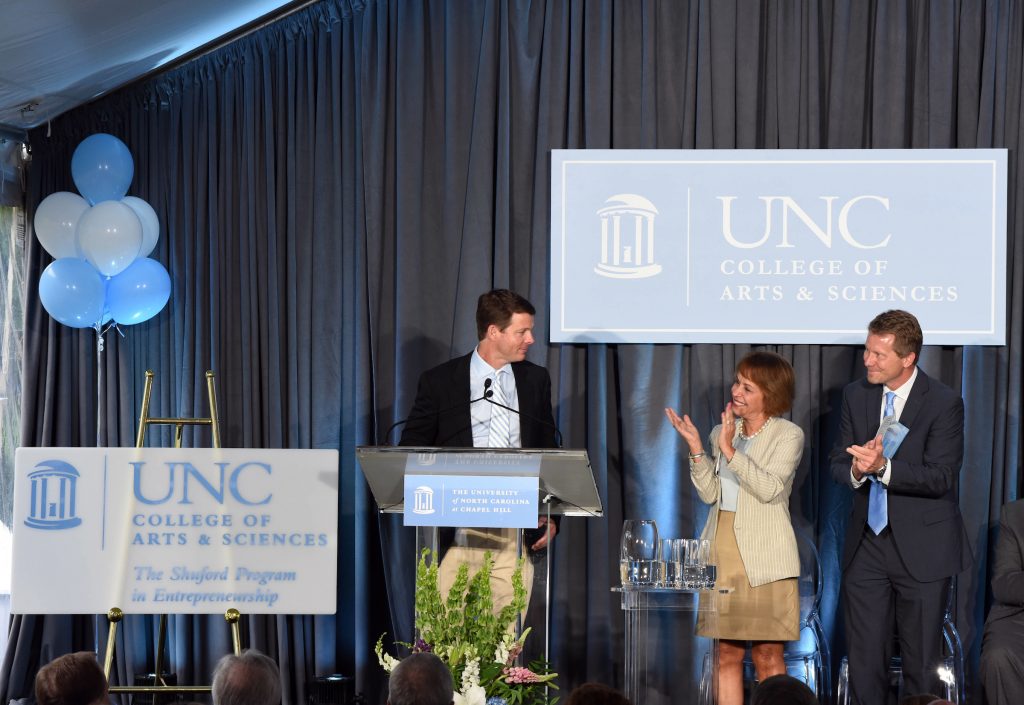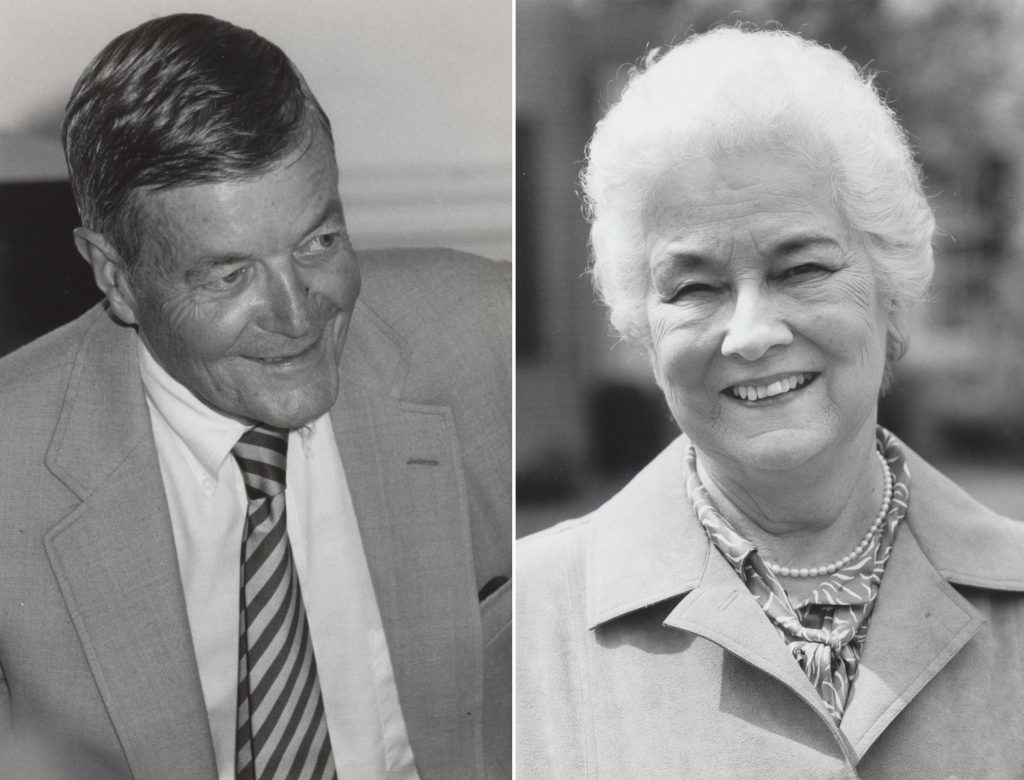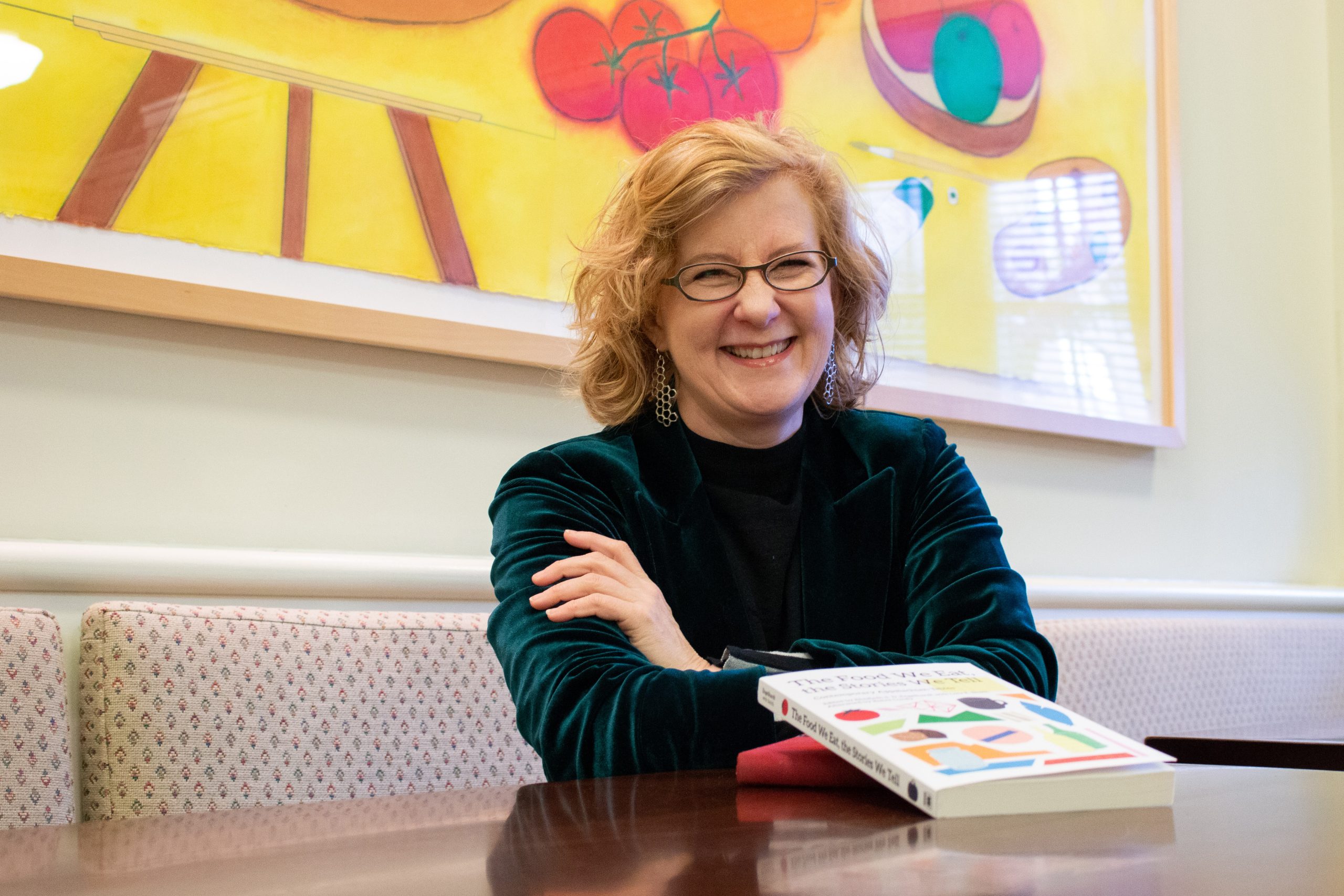
Introducing Bookmark This, a feature that highlights new books by College of Arts & Sciences faculty and alumni, published on the first Friday of every month during the academic year.
Featured book: The Food We Eat, the Stories We Tell: Contemporary Appalachian Tables (Ohio University Press, October 2019), edited by Elizabeth S. D. Engelhardt, with Lora E. Smith.
The Food We Eat, the Stories We Tell: Contemporary Appalachian Tables (Ohio University Press, October 2019), edited by Elizabeth S. D. Engelhardt, with Lora E. Smith.
Q: Can you give us a brief synopsis of your book?
A: This book is an invitation to the reader to sit down at an Appalachian table with all the authors and tell stories about foods, people and the mountains around them. Those stories are about the wonderful messiness of everyday eating: Blue Ridge tacos, kimchi with soup beans, frozen dinners from the local grocery chain and leftovers taken home in old Cool Whip containers. Some of the authors come from families with long pasts in the mountains, from members of the Eastern Band of the Cherokee to white and black families who entered Appalachia generations ago. Others have 20th or 21st century stories of migration and movement, arriving from Mexico, Central America, Spain, South Korea or Switzerland. But what shines through all the stories are the connections between mountains and people made visible by the foods we share.
Q: How does this fit in with your research interests and passions?
A: I am from Appalachia myself (if you ask me, I am most likely to say, “I’m from the mountains of North Carolina,” and the word “mountains” is of equal importance as the other words in the phrase). My first book was about Appalachian women’s ecological and environmental literature. I’ve since written a lot about food and cultures in the U.S. South. I never left the mountains behind in my scholarship. This book was a chance to bring those two interests back together.
Q: What was the original idea that made you think: “There’s a book here?”
A: This book was possible because of the networks of people that hold it up. Carolina has made those networks stronger, not only for me but for many of the authors at this table. I met Lora Smith through her work with our folklore program in my home department, American studies. Emily Hilliard and Emily Wallace, two other contributors in the book, also received master’s degrees in folklore here; Erica Abrams Locklear received her B.A. from us and is now a professor at our fellow system school, the University of North Carolina at Asheville. Our Center for the Study of the American South, along with the creative writing program in the department of English and comparative literature, has hosted Robert Gipe here on campus, and that’s one of the places I got to know him more. Karida Brown has been a postdoctoral fellow in Wilson Special Collections Library. Ronni Lundy, who wrote the afterword, was here on campus as the Caldwell Family Artist-in-Residence, a joint program between the Ackland Art Museum and the department of American studies. There are many more such connections to draw between us all.
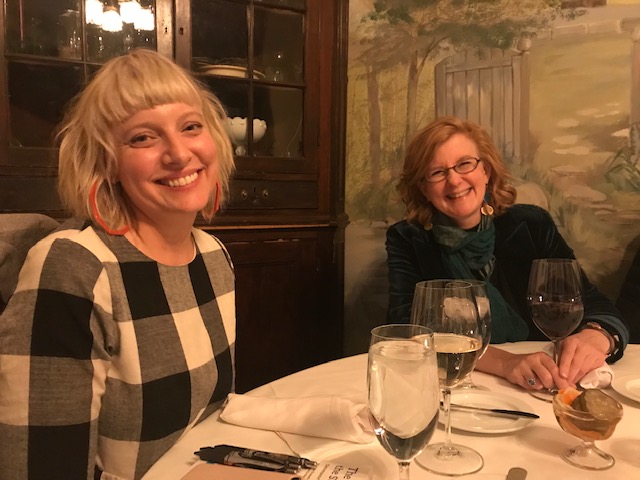
Q: What surprised you when researching/writing this book?
A: Soup beans, cornbread, ramps and pickles — and the ways they are prepared, preserved and served — are in this book about Appalachian foodways. So are fast foods, fancy wines and fusion tacos. I have been (pleasantly) surprised that no one blinked when Lora and I said “all of these are the stories we need to hear to really sit at contemporary Appalachian tables.”
Q: Where’s your go-to writing spot, and how do you deal with writer’s block?
A: I hide in the corners of Wilson Library. I take myself camping with a solar laptop charger. And I never get the Wi-Fi option on an airplane. I write in all those places. When I get stuck, I take a walk, and I read someone else’s good words or listen to other people’s good stories all around me.
Elizabeth S.D. Engelhardt is the interim senior associate dean for fine arts and humanities and the John Shelton Reed Distinguished Professor of Southern Studies in the College of Arts & Sciences. Lora E. Smith directs the Appalachian Impact Fund in Eastern Kentucky.
Nominate a book we should feature (published in about the last six months) by emailing college-news@unc.edu. Find some great books to add to your reading list by checking out our College books page.

